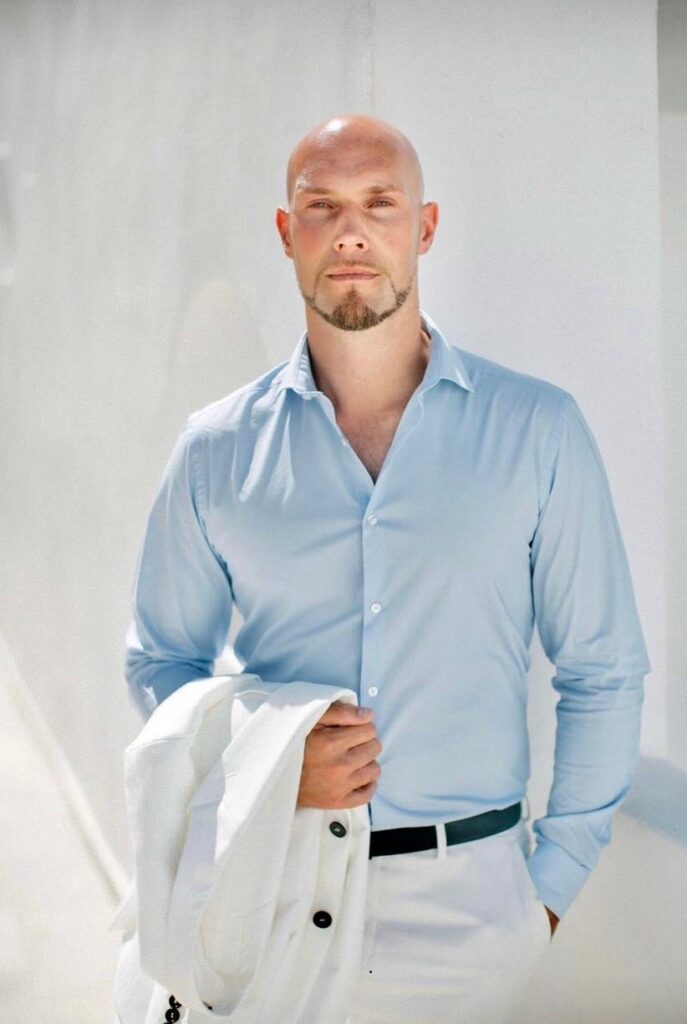
When former English light-heavyweight champion, Peter Haymer, began attending our London Ex Boxers Association meetings five years ago with his dad (Peter senior), the 44 year old from Enfield came across as a quiet man who couldn’t help standing out from the crowd. With his handsome features and his 6ft 2in stature, Peter possesses the type of charisma that could easily encourage conceit, a fact that makes his respectful modesty and sunny disposition all the more disarming.
The Haymers, father and son alike, are boxing men through-and-through. St Pancras was their club, and their connections with LEBA stretch way back (for the father) to when he used to spar with Stephen Powell and he trained alongside prolific amateur and 45 year trainer at the club, Ronnie Smith, and (for the son) to when Peter began as a junior at St Pancras and Ronnie became one of his first trainers. The Haymers’ first visit to LEBA actually transpired in the year 2000 when our meetings were held at Kings Cross and Peter was voted best London amateur, and they came along to collect the trophy.
Peter’s boxing pedigree also stems from his mother’s side of the family. “My mother’s dad, my Granddad Charie, boxed in the army. He was also the secretary and matchmaker at St Pancras, and my mum’s brother, my Uncle Charlie, won some national titles. I’m not sure my mum loved me fighting, but boxing was in the family. None of my family played football and stuff, so I just think boxing was a natural thing that my mum was expecting me to get into.”
“When I first started at St Pancras, I was only seven years old. Ronnie Smith was actually one of my granddad’s juniors, so I knew him quite well. Ronnie definitely had a part to play with my jab, that’s for sure. He really made me work the jab well on the pads. But a man called Brian John was my main junior trainer.”
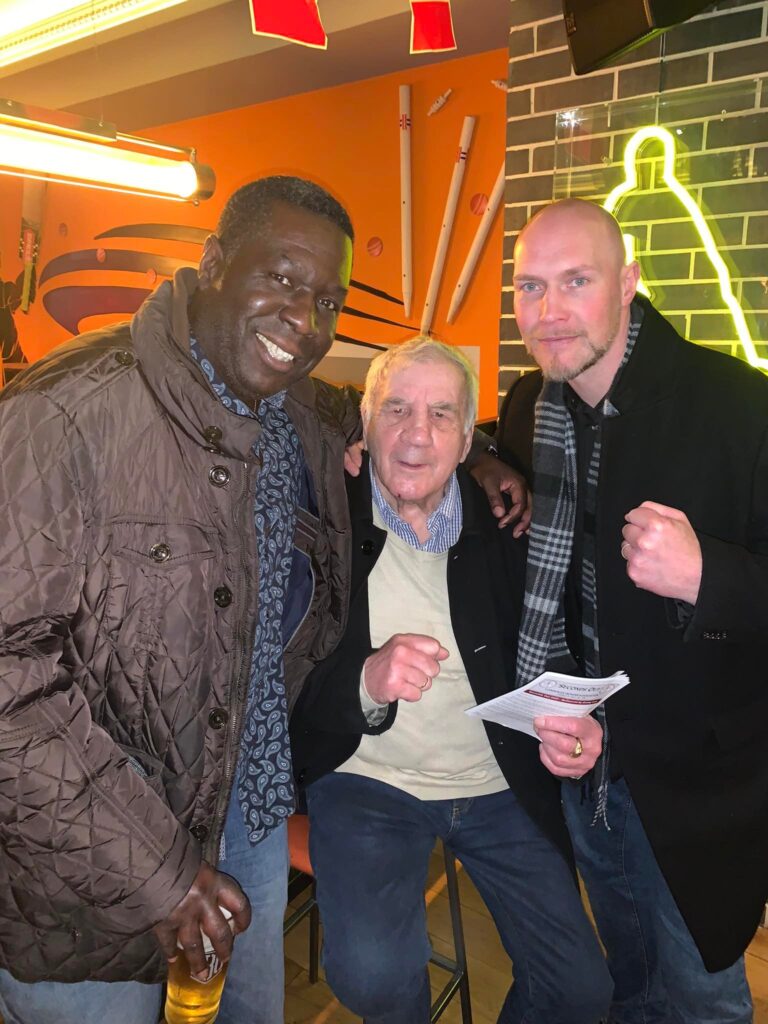
“Although I was involved in boxing from young, the competing didn’t start until I was nearly 16. I think I hadn’t learnt how to control myself properly. If someone was better than me, I couldn’t accept it back in the day. When I got to about 15, I was quite big for my age and I started sparing with the bigger guys. I had to accept that you can’t always win, so I learnt to control myself. I had my first fight midway through my fifteenth year and I never turned back.”
“Because I won my first few fights by knockout, I found it quite difficult to get opponents, so I used to get thrown into the championships. I won the Londons every time, and then I’d come into contact with someone. The first loss I had was a Foley ABC boy called Geoffrey Diggins. He was absolutely huge and he towered above me. I had a really good fight with him, but he was just too clever. Afterwards, Diggins’ dad came up to my dad and said ‘That was a good fight,’ and my dad said ‘Yeah, he didn’t do bad for his fifth fight.’ Diggins’ dad was like ‘My God! My son is a four time national champion,’ and he sort of touted me to do good things in the future, so that was a nice little boost for my confidence back then.”
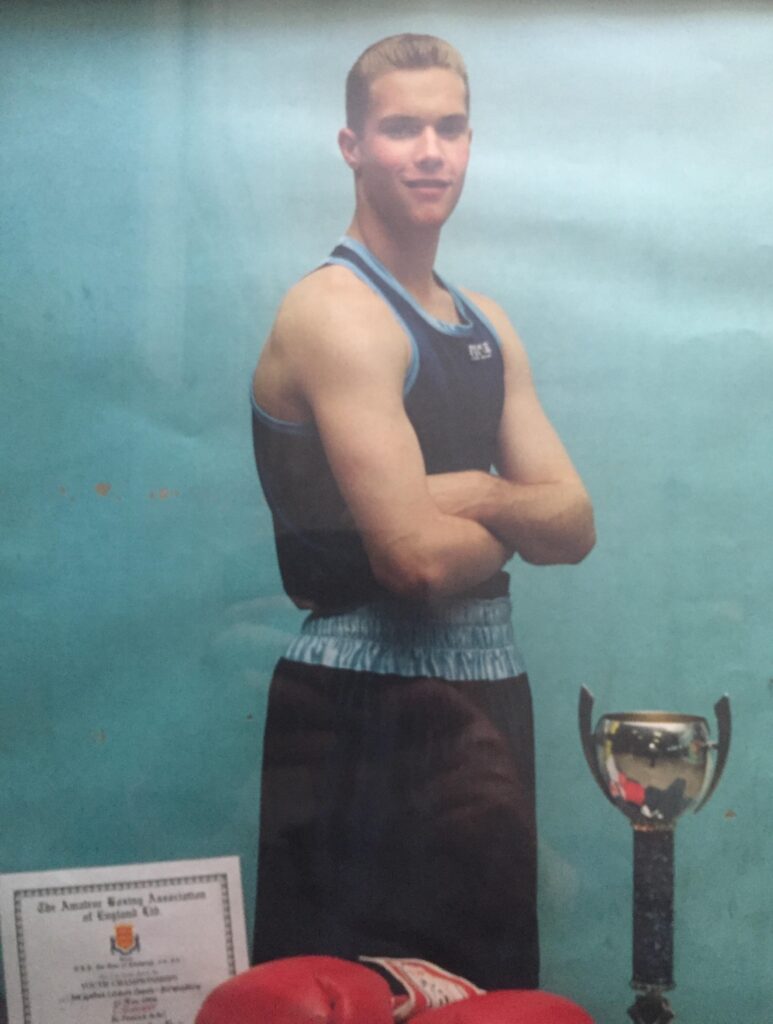
Peter went on to win the junior and the senior ABAs, the latter against Patrick Smyth when Peter stopped the Bristol-based banger inside three rounds at the Metrodome Leisure Centre in Barnsley in May 2000. “Patrick Smyth was an all-Ireland national champion. I’d just lost my grandmother, my granddad’s wife, the guy who got me into the boxing in the first place. I was quite well-known for being a pretty good technical boxer. But, that night, I just didn’t have no feelings. I just wanted to go out and win for my nan, but I didn’t care how I won. I was very rugged. My chin was up. I was throwing my shots almost from my hips, rather than from my shoulders. I was just walking on to shots and I was clumping him and hitting him all over the place, and I think he sort of gave up on himself a little bit. That day, it was as if I could have fought anybody in the world and I was not going to be denied. We’ve got the fight on video and sometimes I sit and watch it with my kids.”
Peter turned pro in 2000 at the age of 22 with another important influence from his amateur career riding shotgun, a man named Chris Hall. “I’ve known Chris since I was about 16. I’d been training on and off with him as a kid and he helped me towards the senior ABA title. When I turned pro, I signed a contract with Sports Network, so I had my first eight fights with them and Chris was my coach. Then I parted ways from Sports Network because I thought I’d go and learn the pro trade a little bit, so Chris stepped in as my manager. We used to use the smaller hall promoters, rather than the bigwigs, just get some fights. I was a pretty decent ticket-seller at the time because my father knows quite a lot of people, so I was able to get on shows here and there.”
“Then they offered me the opportunity to fight ‘Spartacus’ for the English light-heavyweight title, and that was a great fight for me. We’d boxed as amateurs, I think in the quarter-finals, and I think I beat him by a point on the scorecards, so he definitely wanted revenge. He was a very big puncher and I was a clever boxer. I had a good chin and I just kept it long. We had a very good fight, and I won it on points.”
After defending his English title against Mark Brookes, who he stopped in the tenth round in Sheffield, Peter made his second defence at York Hall against Tony Oakey. “Tony Oakey was definitely the best professional opponent I ever faced. He was tough as old boots and a very underestimated boxer. I thought very highly of Tony as an amateur. So I went into that fight giving him loads of well-deserved respect, but I think it hindered my performance because I just stuck with my boxing. Although I got the decision, it was very close and he still thinks he might have won. We laugh about it from time-to-time because we’re still friends to this day.”
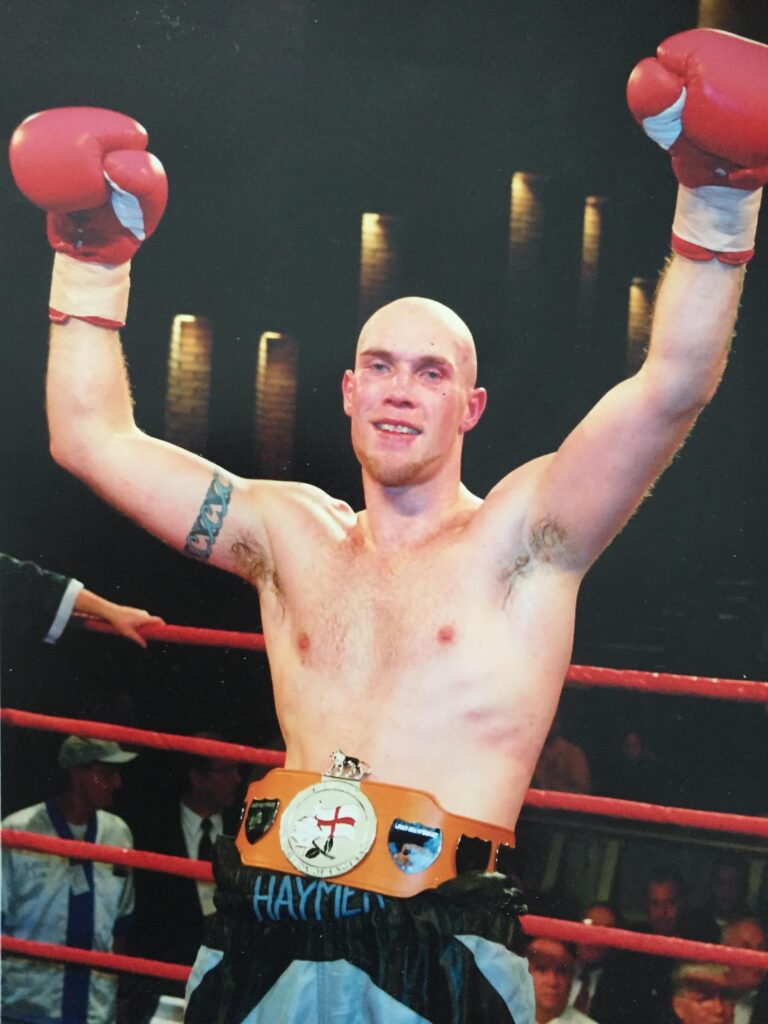
Peter made one more defence of his English title, stopping Leigh Alliss in nine rounds in Bristol, before relinquishing the English belt to challenge Ovill McKenzie for the Commonwealth title. “I boxed Ovill twice, the first time a couple of fights previous to the English title fight, and he was a very tough, big-punching guy. I believe I was the first man ever to put Ovill down. I gave him a shot, but, as he fell, he sort of caught me by the legs. After the count, he got a bit of a telling off and that wound the clock down a little bit. I like to think I might have been able to get a few more shots in before the end of the fight, but it went the distance and I won it on points.”
“When we boxed for the Commonwealth title, the fight got postponed a couple of times and I never took a break from training. By the time it got to the fight, I’d trained too much and I’d overboiled, so everything went wrong. Ovill put me down three times in the second round before the fight was stopped. I just had no balance. The referee, Marcus McDonnell, came up to me and said ‘Pete, is everything all right?’ and I was like ‘Yeah, I’m good,’ because I didn’t realise what was happening. Then Ovill caught me with a shot and he came in a little bit with his head accidentally, which cut my eye, and I think that was the excuse that Marcus McDonnell needed to stop the fight. I was devastated. I think even Ovill was shocked because, whenever we’d sparred previously, there were never any signs of him being able to do that. But I really don’t want to take nothing off Ovill because he was never, ever given any free rides. He worked his arse off for everything he got, and I’m glad he became Commonwealth champion that night because Ovill is good stuff and I give him all the respect in the world.”
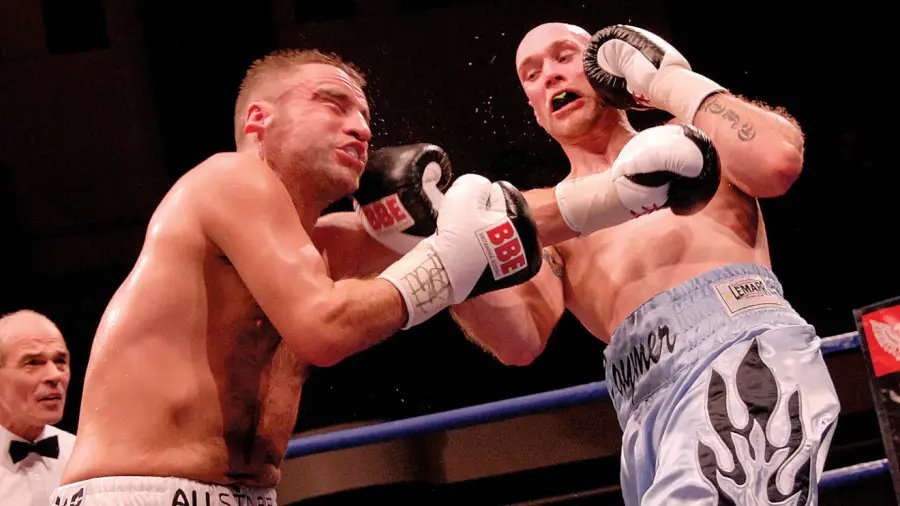
In February 2008, Peter found himself back at York Hall facing Tony Oakey again, this time for the British light-heavyweight title. aH“It was so boiling hot in York Hall that night. While me and Tony fought like hell, there were people sitting at ringside with shorts and vests on and they were finding it hard just to lift their pints of beer up! I gave Tony so much respect in the first fight, so the second time I decided to just go in there and take it to him. I was marking him up and he was taking some big punches, but Tony was an absolute machine. It got to the point where I was hitting this guy who just wasn’t moving. In the end, I couldn’t hold my arms up. He clipped me as I was on my toes trying to pivot away. I went down and I was so exhausted that I couldn’t even get my bum off the floor, and he stopped me in the ninth. But I could have hit Tony all day long with bricks, and he weren’t being denied. So I’ve got nothing but respect for Tony. The man is a great, great fighter. I’m pleased to call him my friend and I was delighted to share the ring with him on both occasions.”
“My last fight was a points win against Danny Couzens at Newmarket. They were telling me I was in line for another shot at the British title, and then everything just went quiet. In the end, no opportunities came and I’d not long had my daughter. So I was giving up all this time, no money was coming in and I had a little girl at home that I wasn’t seeing. I’d finished on a win. I had a good run. So I decided to call it a day and become a father properly.”
“Throughout my boxing career, the support I got from my wife was great. When I met Katie, I was 21 and she was only 18. My sister, Lynsey, and Katie became close friends and, when I was in the ring, they were always in the background screaming out ‘Go on, Pete!’ Lynsey’s favourite one was ‘Keep your guard up,’ like I weren’t gonna do that! While I was training and I wasn’t working, Katie was my support system really. Financially, Katie gave me free rein to train. I’d pick up a little bit of part-time work, but she worked really hard to support my boxing, so now I try and work hard to make sure that she gets repaid back.”
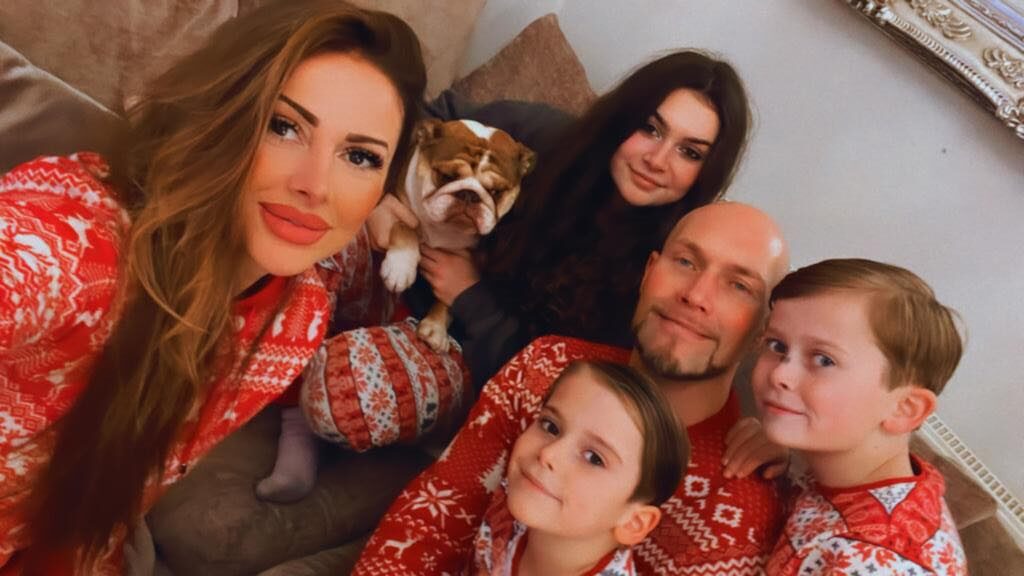
Peter and Chris Hall have remained side-by-side as life has moved on, and nowadays they work together at the Footsteps Trust, a facility for 12 to 16 year old boys who have been permanently excluded from mainstream education in Tottenham which Chris founded in 2010. Peter’s ‘office’ is the boxing gym. “We want to give the young people a deflection from just education, which is what they tend to struggle with, so we put some sports around it to let out their aggression and we try and mentor them into finding a better way.”
“The cohort we’ve got at Footsteps at the moment are average size. But we’ve had some absolute monsters, you know, 14 years old and 6ft 6in tall. There are times when I have to break up physical fights, but usually, as soon as they see it’s me that’s getting between them, it doesn’t tend to escalate too far. They’re just children at the end of the day. A lot of them come from broken families and areas where it’s very, very rough, so it’s not surprising that they lose their way a little bit. I’ve got a lot of empathy and compassion for these kids. To see what some of them have been through is very sad.”
The majority of the pupils at Footsteps are connected with gangs and it’s not unusual for an enemy outfit to turn up looking for trouble. It’s part of Peter’s remit to see these youths off. “There’s been times where I’ve had to go to the door and send some guys away. I’ve been doing this job for so long that I’ve learnt how to diffuse a situation. I talk to these lads respectfully and let them know ‘The police will be here. Get yourself away. Don’t do nothing stupid.’ Nine times out of ten, they don’t really want to be doing what they’re doing. They feel like they’re in a predicament, I’m sure. I’ve seen some sights. I’ve seen some bad stuff happen, but I never really feel in danger because I treat people how I want to be treated and, thank God, I’ve never had no one turn on me. They always realise I’ve got their best interests at heart.”
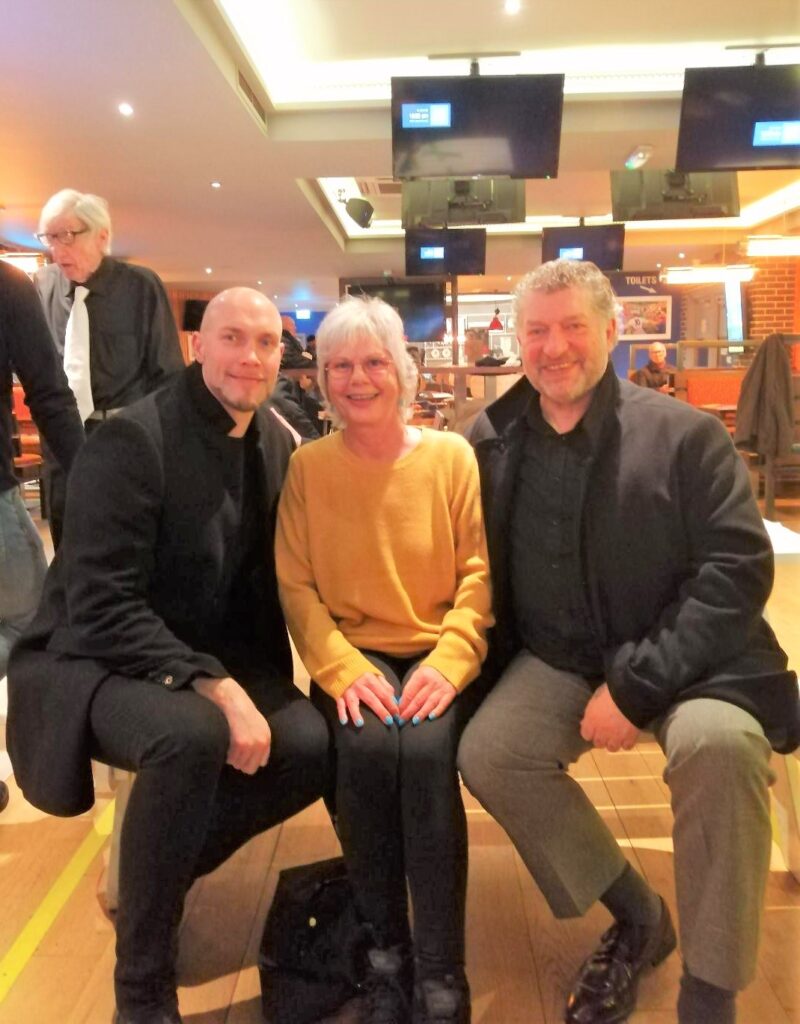
The Haymers have become an esteemed presence at our meetings, and Peter senior loves nothing more than to stand back and watch his son strutting his stuff. In the words of the father, “I love being at LEBA with Peter. It’s an absolute pleasure just to see the people that know him, not me, because I’m 73 now and I only had two fights as an amateur, although I did used to spar with Bunny Sterling and Lenny Gibbs and people like that. But Peter is the boxer of the family. I think it’s terrific what Peter achieved in boxing, and also what he does for a living. I don’t think I could put up with some of the aggravation he gets off some of the children, and how he deals with them is fantastic. He’s such a lovely friendly boy. He’s not flash. Everybody he meets seems to take a liking to him. I couldn’t be more proud of him, and I love coming to LEBA with him every month.”
It is great news that Peter and his friend, former British bantamweight champion, Martin Power, have joined the LEBA committee. “Me and martin go back to when he was maybe seven years old and I was about ten. Our friendship goes so deep that he was my best man at my wedding and his wife was Katie’s bridesmaid. It’s an honour to try and help bring in some new blood to LEBA, and we’re going to do everything we can to get LEBA kicked off in a new way.”
“The best thing about LEBA is being together with likeminded people, talking about experiences that you all share in common. There’s respect left, right and centre throughout the whole room because we all know what heart it takes to get in the ring, to jump up in front of a lot of people and put yourself on the line. The best people in the world are boxers, and I love to be part of it.”
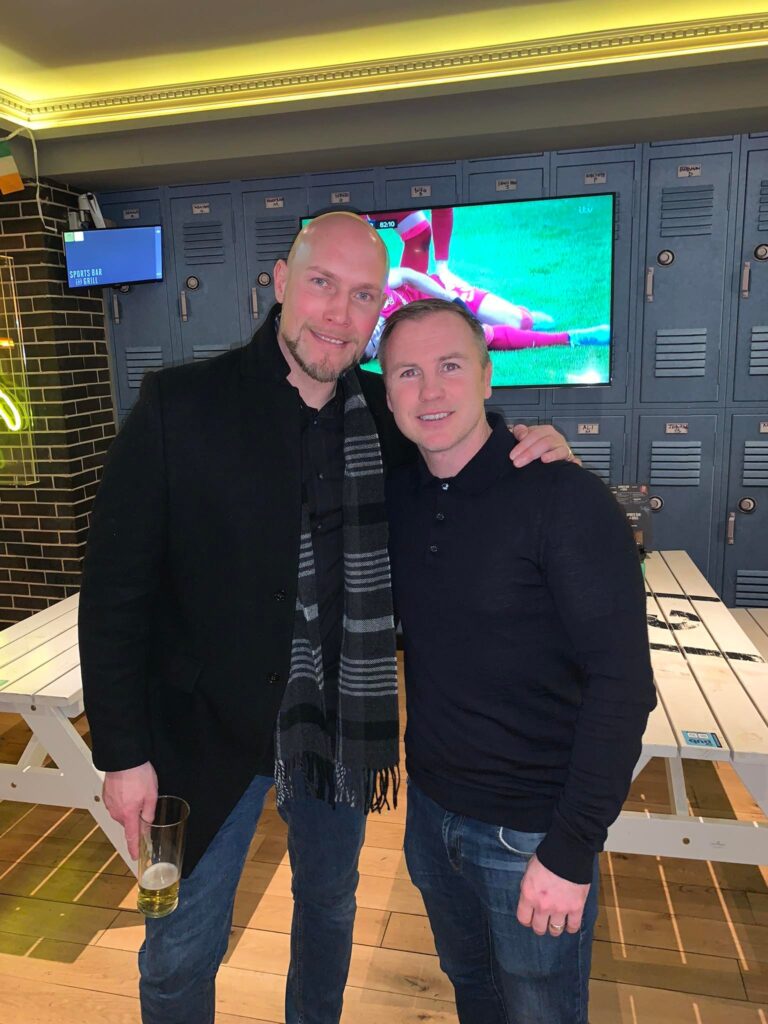
Anybody wishing to contact the Footsteps Trust with a view to sponsorship or donations can contact Chris Hall on 07838 132091 or chris.hall@footstepstrust.com.
Pete Snr and Jnr both absolute gents with hearts of gold, proud to have the. As friends
A lovely read. Keep up the amazing work that you’re doing Peter. You are a legend!!
Amazing story amazing family definitely gonna order the book
Happy New Year to you all